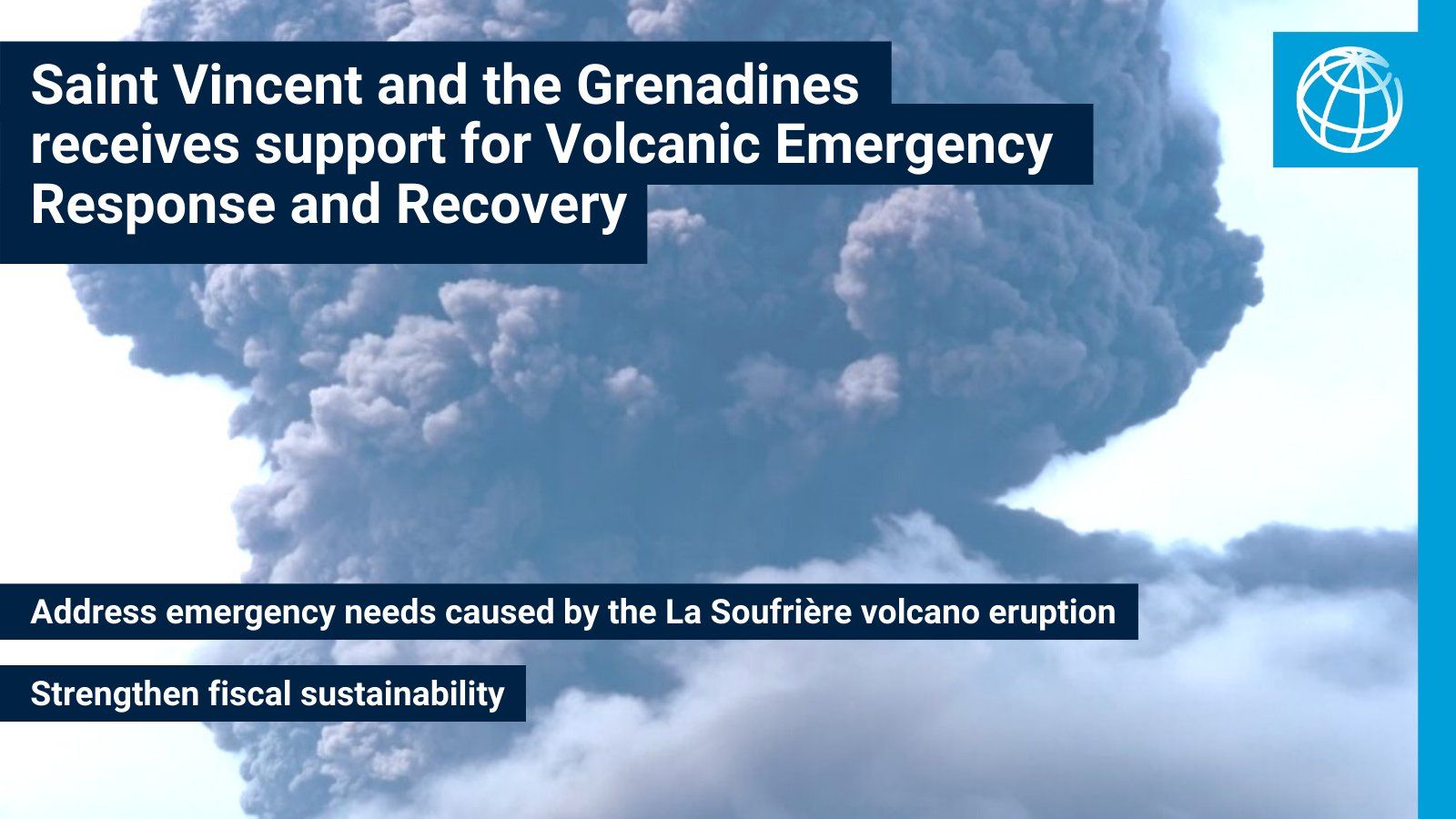World Bank Approves US$50 Million to Support Volcanic Emergency Response and Recovery in Saint Vincent and the Grenadines
Media Release Courtesy The World Bank
WASHINGTON — The World Bank Board of Executive Directors, on Friday, approved US$50 million in Supplemental Financing for the Second Fiscal Reform and Resilience Development Policy Credit (DPC) for Saint Vincent and the Grenadines.
This quick-disbursing operation aims to help the country cover a large unexpected financing gap and address emergency needs caused by the La Soufrière volcano eruption, which began in March 2021. The original DPC was approved in June 2020.
“The volcanic eruption began as Saint Vincent and the Grenadines was still coping with the devastating socioeconomic effects of the COVID-19 pandemic,” said Tahseen Sayed, World Bank Country Director for the Caribbean.
“The eruptions displaced close to a quarter of the island’s population and severely impacted livelihoods. We value our strong partnership with Saint Vincent and the Grenadines, and the World Bank remains committed to supporting the people in their efforts to manage the impacts of both COVID-19 and this crisis.”
The volcano eruption, and the ensuing ashfall, mudslides, and pyroclastic flows have had devastating impacts on people’s livelihoods and the economy of Saint Vincent and the Grenadines. This supplemental financing to the DPC approved last year will help the government address emergency response and recovery needs, while also supporting long-term development goals. The operation supports the country’s program to respond to the COVID-19 pandemic, strengthen fiscal sustainability, and enhance climate and disaster resilience.
The financing, which is from the International Development Association (IDA), is interest-free with a maturity of 40 years, including a grace period of 10 years.
World Bank Group COVID-19 Response:
Since the start of the COVID-19 pandemic, the World Bank Group has committed over $125 billion to fight the health, economic, and social impacts of the pandemic, the fastest and largest crisis response in its history. The financing is helping more than 100 countries strengthen pandemic preparedness, protect the poor and jobs, and jump start a climate-friendly recovery. The Bank is also providing $12 billion to help low- and middle-income countries purchase and distribute COVID-19 vaccines, tests, andtreatments.
